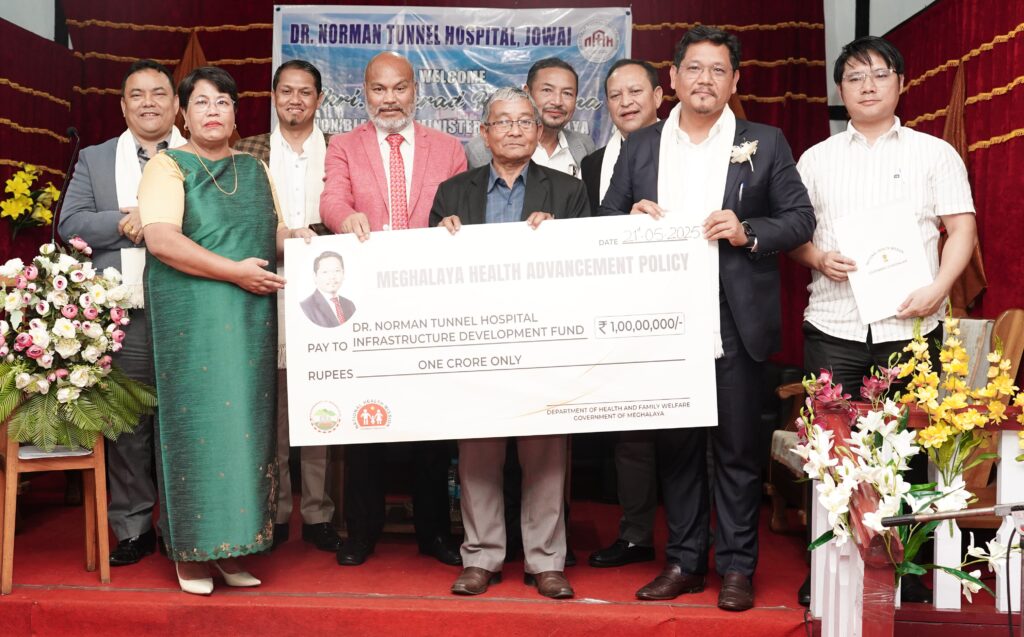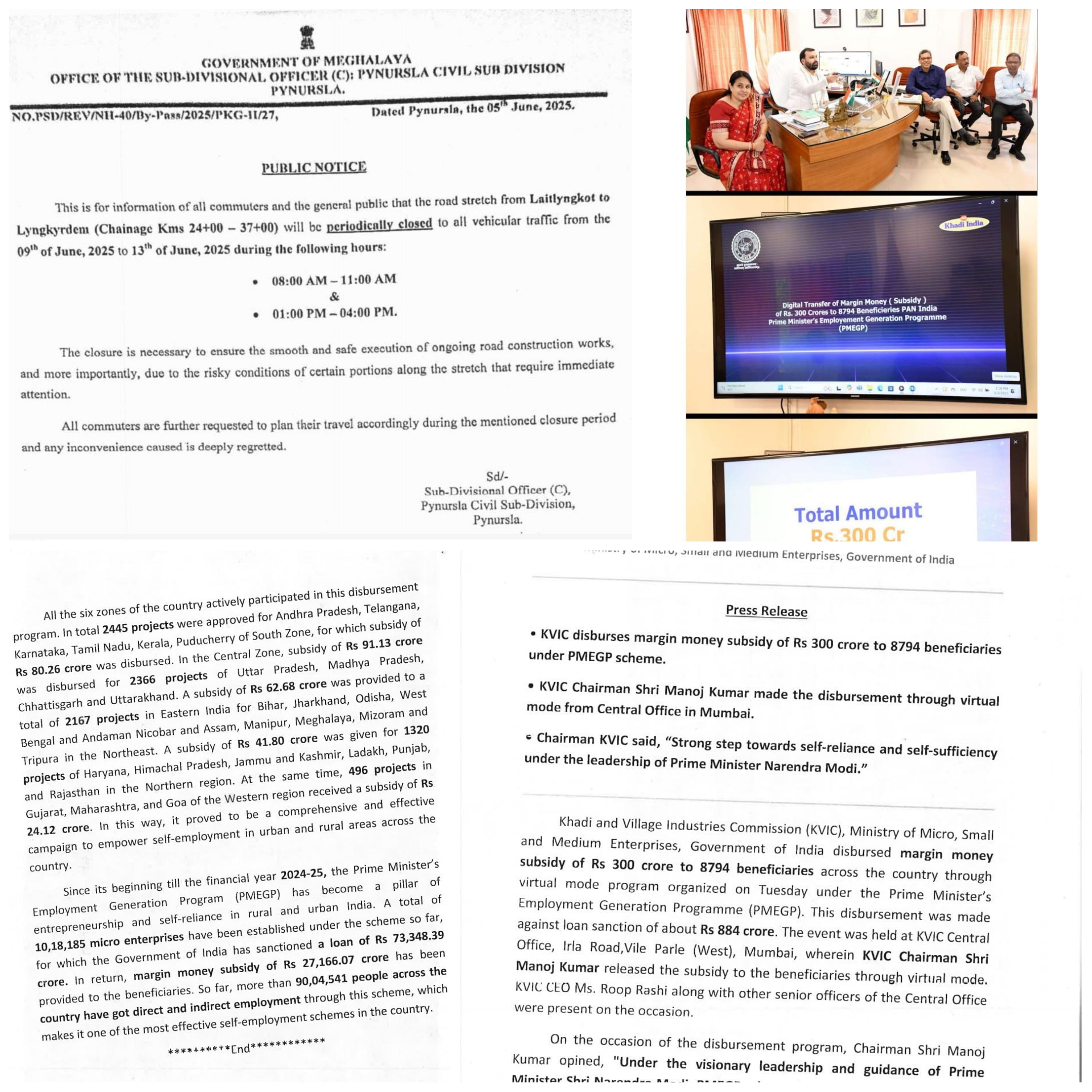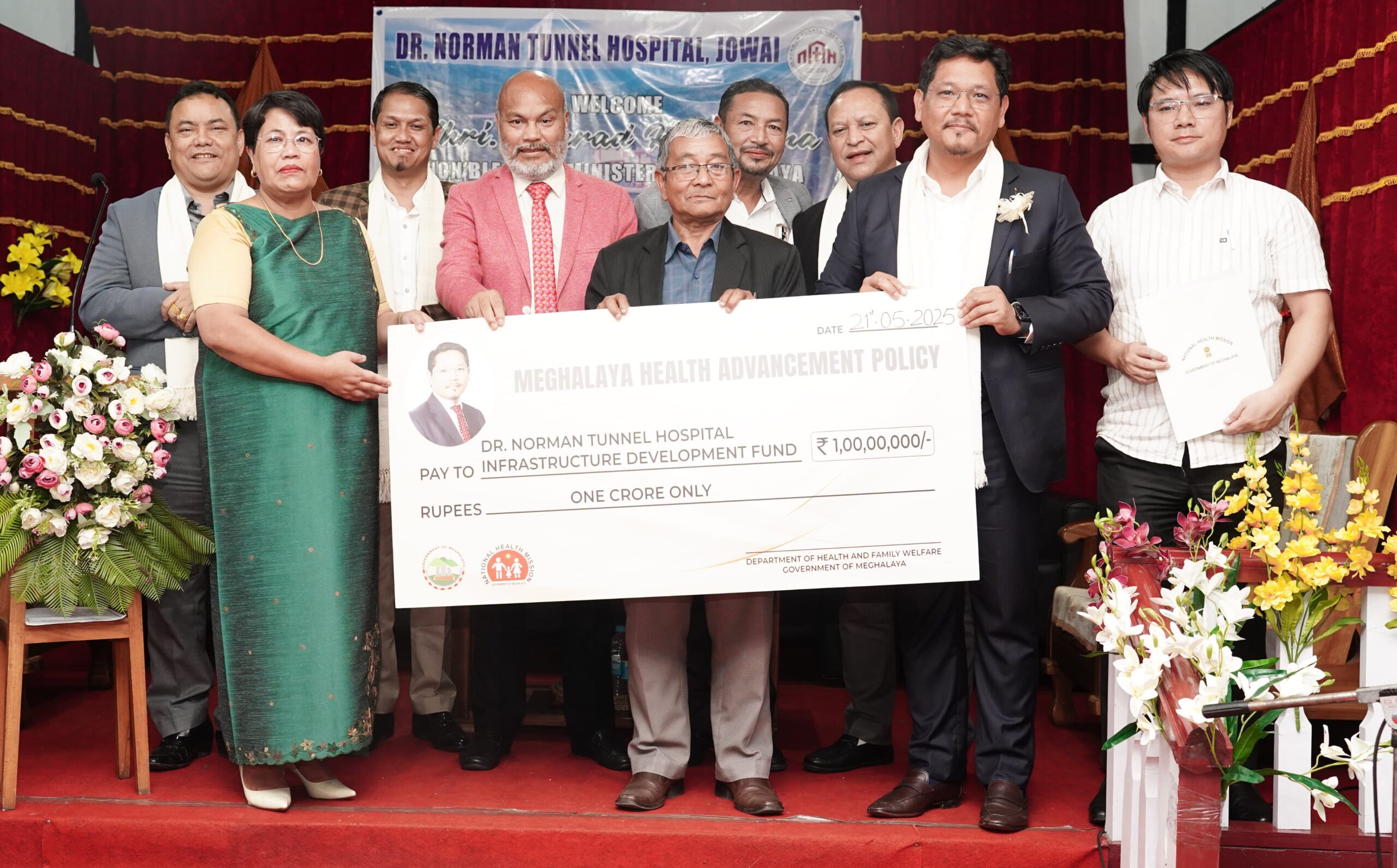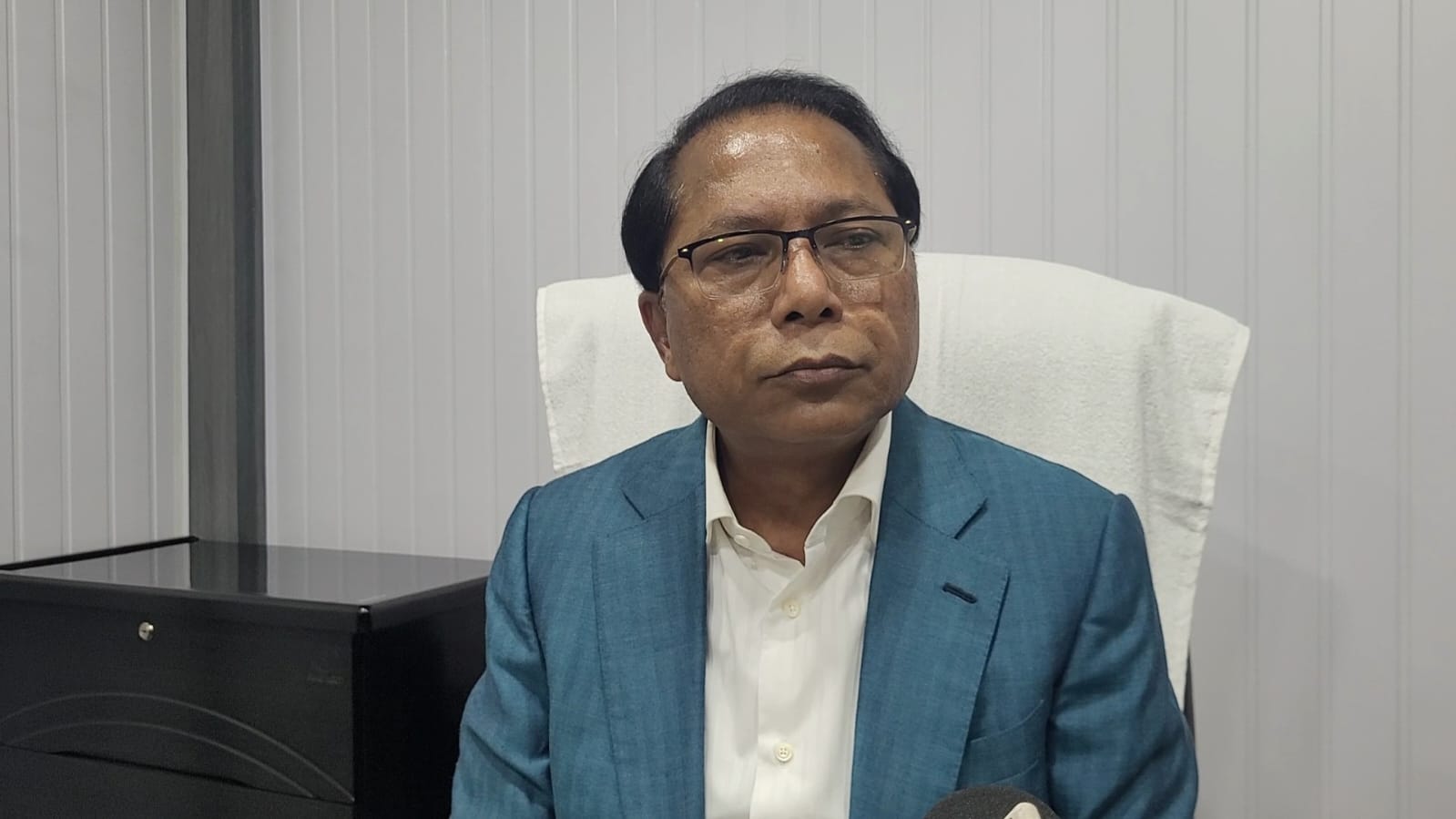
Meghalaya Chief Minister Conrad K. Sangma on Monday handed over the first instalment of ₹1 crore to Dr. Norman Tunnel Hospital, Jowai, as part of the Meghalaya Healthcare Advancement Policy (MHAP). The financial assistance is part of a sanctioned grant of ₹2 crore for the hospital, with the remaining ₹1 crore to be released upon submission of the utilisation certificate for the initial tranche.
The disbursement is part of the government’s broader healthcare initiative under which ₹10 crore has been allocated to five not-for-profit hospitals across the State.
Addressing the gathering, CM Sangma emphasised the long-term commitment of the government to strengthen its partnership with mission-run healthcare institutions. “This is not a one-time gesture but a beginning of lasting collaboration. The scheme is flexible—institutions can decide what’s most urgently needed and utilise the funds,” he said.
The event was chaired by Rev. S. Lamare, who expressed gratitude for the financial support and appealed for sustained government assistance in infrastructure development and nursing education.
Dr. D. Nongpluh, Medical Superintendent of the hospital, highlighted the growing need for specialised services. He pointed to the increasing burden of non-communicable diseases and underscored the urgency of setting up a renal dialysis unit in the hospital.
Sangma also announced plans to host a state-level healthcare conference to bring together key stakeholders from the government and mission hospitals. “We must move forward together—to share ideas, bridge gaps, and serve better,” he stated.
Citing improvements in public health indicators, the Chief Minister said focused intervention in the health sector had led to a significant decline in the maternal mortality rate (MMR). “This success is largely attributed to initiatives like the CM Safe Motherhood Scheme, which ensures real-time monitoring of every pregnant mother in the State,” he said.
The Chief Minister added that the government is leveraging technology to monitor and address high-risk pregnancies, enabling health officials to respond to complications in real time.





